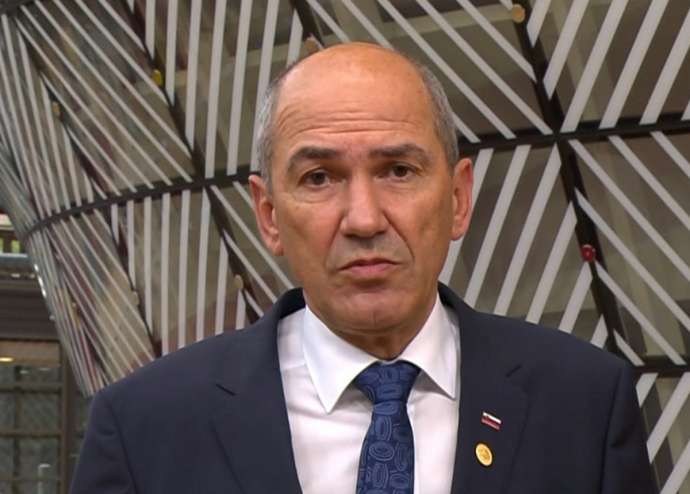STA, 28 June 2022 - The Constitutional Court has rejected an appeal by former PM Janez Janša against the statute barring of the Patria defence deal bribery case. While Janša felt denied a chance to prove his innocence, the top court claims he had no legal interest, as statute barring is fully equivalent to an acquittal, meaning he is considered innocent.
Janša, whose 2013 conviction for bribery in a 2006 tender won by Finnish defence contractor Patria was quashed by the Constitutional Court in April 2015 and sent into retrial that later became statute barred, published the ruling on Tuesday.
He wrote on Twitter that "After more than 15 years of the Patria saga the caricature of Slovenian rule of law ended with the pronouncement of innocence".
Po več kot 15. letih sage o #PATRIA je slovenska karikatura pravne države končala zadevo z razglasitvijo nedolžnosti. @UstavnoSodisce po dolgem oklevanju zavrglo našo pritožbo zoper zastaranje in sporočilo, da ima njihova odločitev enake pravne posledice kot oprostilna sodba. pic.twitter.com/Fj6ZwEzaNl
— Janez Janša (@JJansaSDS) June 28, 2022
Janša, who had already spent 145 days in jail before a retrial was ordered, had appealed the 2016 Supreme Court ruling, which had upheld the view of the Higher Court from November 2015 that Janša could not appeal a decision that was in his favour.
The Supreme Court also argued that statute barring the case, involving a deal worth EUR 278 million and Janša's alleged accepting of a promise of a bribe for which no direct evidence was presented, is fully equivalent to an acquittal or a case dismissal.
Moreover, while nodding to Janša about the case actually falling under the statute later than claimed by the first instance court in September 2015, the Supreme Court argued this would still have happened before a retrial could end and would thus change nothing.
Janša meanwhile claimed violations had occurred of the articles of the constitution on equal protection of rights, the right to justice, the right to a remedy and the principle of legality in criminal law.






